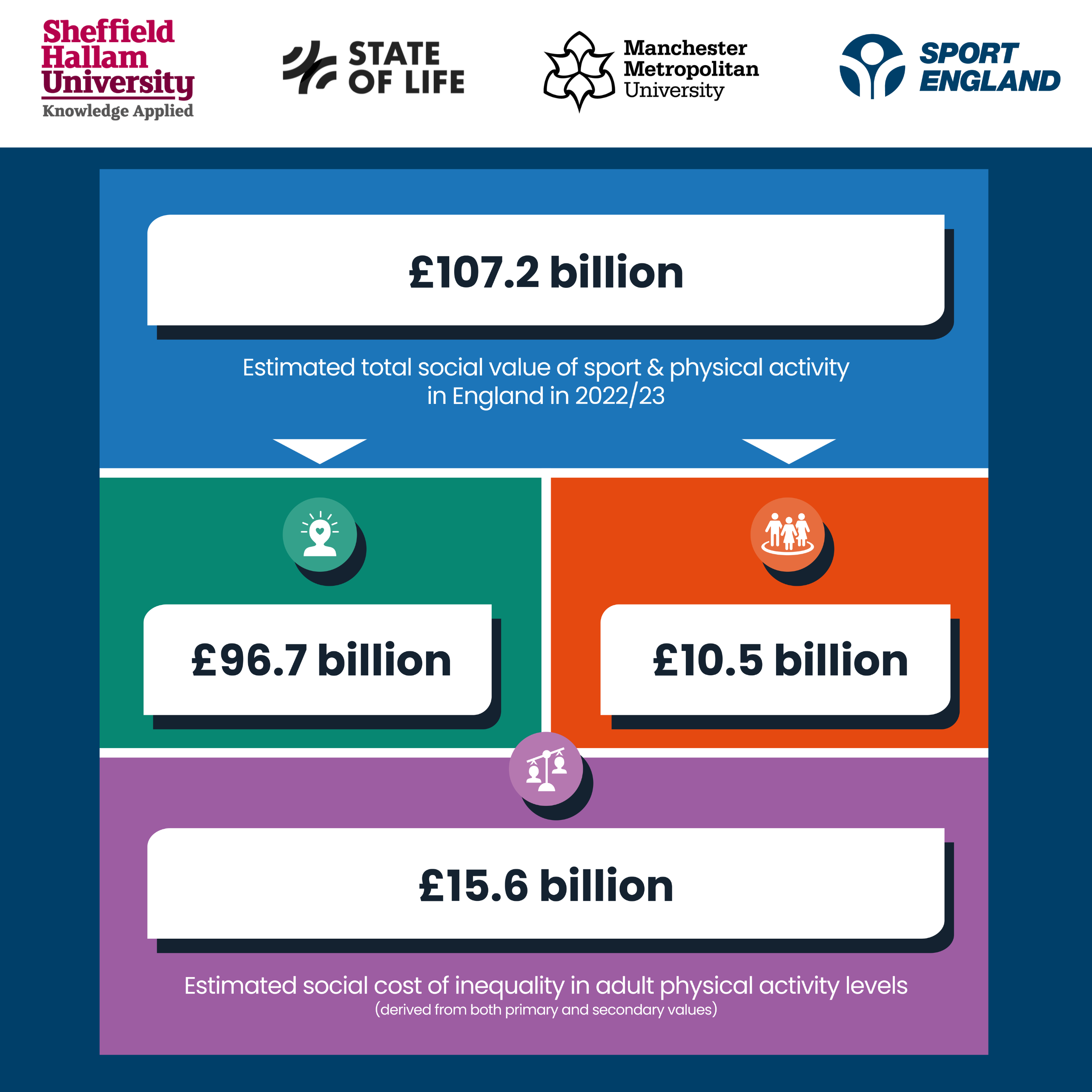Your basket is currently empty!
The Social Value of participatory sport and physical activity
Sport England’s latest research, published October 2024, finds that community sport and physical activity generates a staggering £107.2 billion in annual social value across the UK, highlighting its crucial role in national health and wellbeing and the importance of our work at Active Derbyshire and Active Notts.
Key Stats

The comprehensive study shows that physical activity contributes £96.7 billion in annual wellbeing value through participation and volunteering, alongside £10.5 billion in healthcare system savings.


Health Services Impact
Active lives can be the solution to big problems: from the prevention of dementia, diabetes and depression to turbo-charging health and happiness, sport & physical activity is a key part of tackling major social challenges – and at the heart of long-term planning. Active lifestyles prevent approximately:
- 1.3 million cases of depression
- 600,000 cases of diabetes
- 57,000 cases of dementia annually
The NHS benefits from significant £10.5 billion in cost reductions, including:
- £540 million in reduced GP visits
- £780 million in reduced mental health service usage
Individual and Social Benefits
Regular physical activity generates a wellbeing value of £2,500 per active adult, whilst even being ‘fairly active’ produces benefits broken down to £1,200 per person annually.
Notably, the benefits are even more pronounced for traditionally underserved groups, such as older people, or those with health conditions. For those individuals living with a long-term health condition for example, the wellbeing value more than doubles to £5,100 per year, hence the importance of our mission to work with those facing the greatest inequality.
For adults with two or more intersecting characteristics of inequality – such as an older person who is disabled – wellbeing values from an active lifestyle are £3,800 per ‘active’ adult: £1,300 or around 50% higher per person than the population average.
Addressing Inequalities
Despite these positive findings, the report highlights a concerning £15.6 billion annual social cost resulting from inequalities in adult activity levels. This underscores the importance of protecting and investing in accessible physical activity opportunities, particularly for the benefit of those from marginalised communities and facing the greatest barriers to participation.
The research emphasises that active lifestyles are not merely about exercise – they represent a crucial investment in the nation’s long-term health, well-being and prosperity, from preventing chronic conditions to fostering community spirit, to improving the nations mental well-being to reducing the stress and cost on our healthcare systems. The benefits are valued at £107.2Billion but this could be classed as conservative.
We will look to localise the findings of this data in due course to see what we can take from this for Nottinghamshire and Derbyshire.